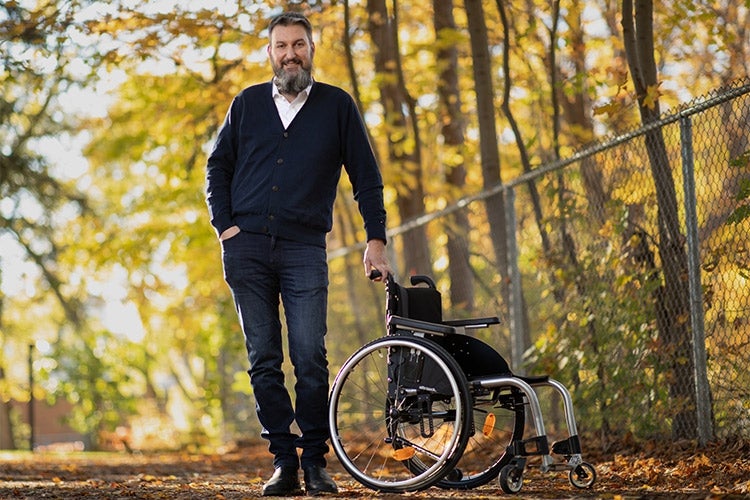
University of Toronto students win awards for their accessible design
Published: September 3, 2021
A team of University of Toronto students has taken first place in the architectural and industrial design barriers category of the annual Innovative Designs for Accessibility (IDeA) competition - and third place in the RESNA Student Design Challenge (SDC) for their accessible dressing device.
Tiffany Igros, Casie Lee, Lynn Li and Luke Sandor wanted to create an affordable, accessible way to help people with chronic conditions such as arthritis, stroke or amputation dress themselves independently. Their SlapBra design is an assistive dressing device that makes it easier and more comfortable for people with one functional arm to don, fasten and remove a bra.
“The lack of diverse options for assistive dressing devices for bras may be attributed to the historical absence of women in research and design, or the prevalent social stigma individuals with disabilities face regarding sexuality and autonomy,” the team wrote in its SDC submission. “The end result is a notable lack of adequate and effective dressing aids for individuals with physical challenges in dressing a bra.”
Administered by Universities Canada on behalf of Employment and Social Development Canada, IDeA challenges university students across Canada to develop innovative, cost-effective and practical solutions to accessibility barriers for people with disabilities.
Organized by the Rehabilitation Engineering and Assistive Technology Society of North America, SDC is an annual competition that showcases creative and innovative assistive technology design, with entries judged on originality, quality of design, and usefulness.



